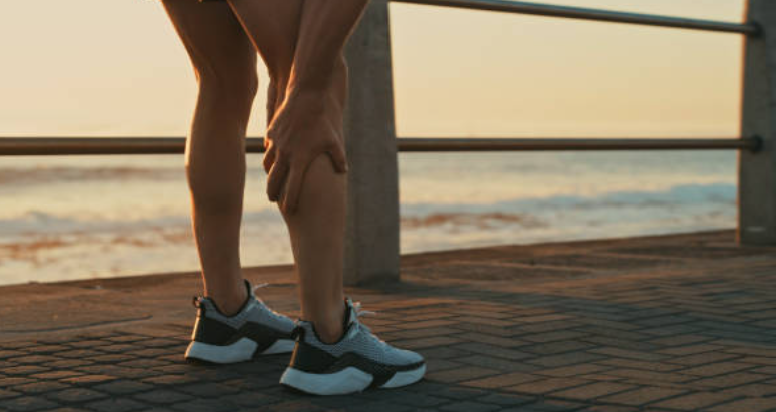What are muscle cramps?
Muscle cramps are painful involuntary spasms of a specific muscle. This condition can occur in any muscle in the body however it is particular prevalent in the calves and feet. The exact cause of muscle cramps is unknown but it can be due to many risk factors that include poor fitness, malnutrition, dehydration and muscle fatigue. Cramps can be an uncomfortable experience but it usually resolves itself over time.
Treatments for muscle cramps
Gentle stretching and massage: are the recommended treatment to reduce the duration and severity of muscle cramps. You should gently lengthen the muscle using a sustained hold till the symptoms decrease in severity then proceed to lightly massage the muscles till the cramps are gone. For example, lets take a common calf cramp that is usually experienced in many running physical activities. Place your hands on a wall, gently get into a lunge position and lean forward to stretch the calf muscle. Afterwards, sit on the ground and gently massage the affected area in a circular motion. It is important to see your doctor if you frequently experience cramps to explore if there are any other underlying medical condition that could be responsible for your cramps.
Hydration: our body expends water and other minerals in any physical activity. Our body needs these fluids to help the muscle contract to perform everyday movements. If there is inadequate amount of water in the body then the muscles will not work as efficiently and may lead to a muscle cramp. For this reason, we should ensure that we drink adequate amounts of water especially when we engage in exercise.
Nutrition: A balanced diet is important for many bodily functions and this includes the prevention of muscle cramps. Food high in electrolytes, calcium, magnesium and potassium are great ways to ensure that your muscle is able to function efficiently in physical activity. Athletes also supplement the lost of fluid with drinks that contain electrolytes. Electrolytes are vital to help the body absorb water that often lost through sweat. It is important to always consult your doctor before committing to dietary changes in your lifestyle.
How physiotherapy can help with muscle cramps
Do you need help with a strength and stretching routine for muscle cramps? Book an appointment with one of our friendly physiotherapists for advice to prevent cramps. A physiotherapist are movement and exercise specialist. If poor fitness and muscle fatigue is the reason for your cramps then our physiotherapist will be able to provide you with the necessary rehabilitation program to help reduce the occurrence of your cramps. Our physiotherapist will also be able to provide manual therapy to reduce the muscle tension in your body.

